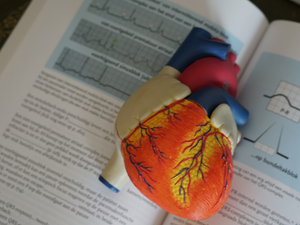4 July 2022
 Transparency in scientific publishing, to facilitate fair access to scientific journals for scientists using innovative non-animal methodologies for studying human biology, was the subject of an April 20-21 workshop co-organized by the Physician’s Committee for Responsible Medicine in collaboration with Humane Society International and other groups.
Transparency in scientific publishing, to facilitate fair access to scientific journals for scientists using innovative non-animal methodologies for studying human biology, was the subject of an April 20-21 workshop co-organized by the Physician’s Committee for Responsible Medicine in collaboration with Humane Society International and other groups.
This workshop focused on a subject addressed in a 2021 roundtable session held at the 11th World Congress on Alternatives and Animal Use in the Life Sciences (in 2021) entitled “Proof in animals”: Has journal editorial policy fallen behind advances in human-based approaches? The workshop was also informed by a survey conducted by HSI and PCRM in 2021, which brought to light the frequency with which journal reviewers required animal studies in cases where researchers had relied exclusively on non-animal studies. Survey responses suggested that requests for animal studies are so systematic that some researchers apparently conduct animal experiments alongside their use of non-animal models to avoid the risks of manuscript rejection and delay in publication.
The study, while preliminary, is available as a preprint[1] and discusses what we have come to term animal reliance bias in publishing. In effect, the demand for animal experimentation alongside non-animal methodologies leads not only to unwarranted animal use, but reinforces an outdated conception of animal models as the gold standard in biomedical research. The continuing existence of such a bias could be detrimental to the quality of future research by increasing the emphasis on animal experiments at a time when more and more researchers are moving away from them.
The workshop sought to address issues posed by the newly discovered— albeit probably long existing—bias and discussing solutions to ensure effective publishing and enable better research. Eminent speakers from various organizations ranging from researchers and innovators to journal editors presented and participated in panel discussions and breakout sessions. One speaker workshop was Dr. Don Ingber of the Wyss Institute who presented on his recent paper, “Is it Time for Reviewer 3 to Request Human Organ Chip Experiments Instead of Animal Validation Studies?” Dr. Ingber reiterated that the lack of reproducibility of animal models and their high variability led to a failure to predict a clinical response, which should be considered by peer reviewers who insist on animal studies to validate human-relevant non-animal methodologies. He supplemented his opinion with numerous examples from his team’s work on the organ-on-a-chip technology – microchips containing live human cells which are engineered to mimic specific human tissue/organ-level functions –.
Dr. Brinda Poojary, our Senior Specialist for Research & Toxicology at HSI India, moderated a session at the workshop at which Dr. Merel Ritskes-Hoitinga, the founder of SYRCLE – SYstematic Review Centre for Laboratory animal Experimentation –emphasized the importance of transparency in publishing. She discussed the role of funding bodies, systematic reviews, reviewer and editor awareness on trending technologies, the need for collaborative work between researchers and innovators, and the importance for stricter publishing guidelines.
The breakout sessions were guided by questions centered on the role of journals, main barriers, and potential solutions to the animal reliance bias in publishing. There was mutual agreement on the requirement to educate stakeholders like editors and reviewers concerning non-animal methods and tools to assess the availability of non-animal models to replace animals in particular research, in addition to strengthening journal guidelines.
A taskforce was formed, with the goal of creating specific expert working groups, publishing a workshop report, collaborating with journals, and funding implementation of solutions. A workshop report will soon be published.
This workshop was co-organized by integral contributors from several organizations including Animal Free Research UK, FRAME, PeTA, and the European Commission Joint Research Centre.
The BioMed21 team at HSI would like to know your opinion and experience with animal reliance bias in scientific publishing. Please write to us at admin@biomed21.org. We welcome your feedback and support.
[1] https://www.biorxiv.org/content/10.1101/2022.03.24.485684v1

Post a comment